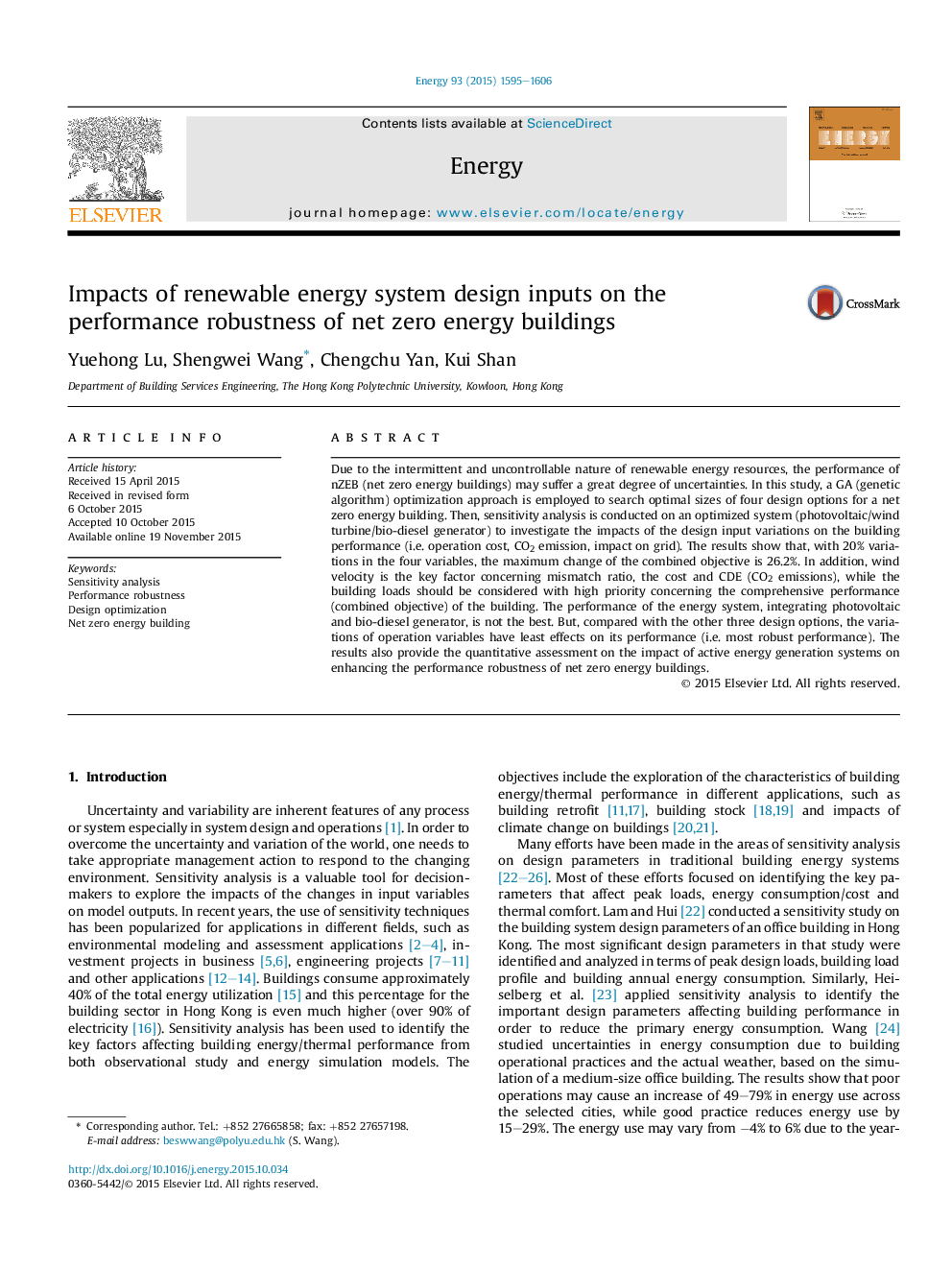| Article ID | Journal | Published Year | Pages | File Type |
|---|---|---|---|---|
| 1731602 | Energy | 2015 | 12 Pages |
•Genetic algorithm is used for design optimization of renewable energy systems.•A sensitivity analysis approach on performance robustness of ZEBs is presented.•A case study on energy system performance sensitivity and robustness is conducted.•The main design input variables with significant impacts on performance are identified.•Performance and robustness of 4 typical renewable energy system designs are compared.
Due to the intermittent and uncontrollable nature of renewable energy resources, the performance of nZEB (net zero energy buildings) may suffer a great degree of uncertainties. In this study, a GA (genetic algorithm) optimization approach is employed to search optimal sizes of four design options for a net zero energy building. Then, sensitivity analysis is conducted on an optimized system (photovoltaic/wind turbine/bio-diesel generator) to investigate the impacts of the design input variations on the building performance (i.e. operation cost, CO2 emission, impact on grid). The results show that, with 20% variations in the four variables, the maximum change of the combined objective is 26.2%. In addition, wind velocity is the key factor concerning mismatch ratio, the cost and CDE (CO2 emissions), while the building loads should be considered with high priority concerning the comprehensive performance (combined objective) of the building. The performance of the energy system, integrating photovoltaic and bio-diesel generator, is not the best. But, compared with the other three design options, the variations of operation variables have least effects on its performance (i.e. most robust performance). The results also provide the quantitative assessment on the impact of active energy generation systems on enhancing the performance robustness of net zero energy buildings.
